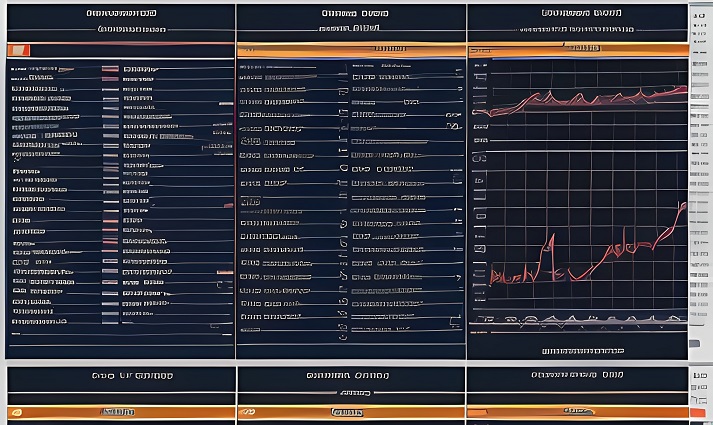Driven by Data: Decision Support for ERP Architects
With the continuous development of big data technology, enterprises can obtain more and more data resources. These data include not only internal production, sales, financial and other data of the enterprise, but also external data such as market, competitors and customer needs. ERP architects need to pay attention to the sources and collection methods of data, and establish a complete data quality management system to ensure the accuracy and completeness of data. ERP architects need to have certain data analysis capabilities, including knowledge of statistics, data analysis tools, etc. Presenting data analysis results to corporate decision-makers in an intuitive and easy-to-understand manner is a key step in achieving data-driven decision-making. Data-driven decision support is an inevitable trend in the development of today's enterprises. As the core decision-makers of an enterprise, ERP architects need to give full play to the power of data and use advanced information technology and data analysis methods to improve the enterprise's operational efficiency and competitiveness.

In today's era of information explosion, enterprises are facing unprecedented challenges and opportunities. In order to better cope with the complex and ever-changing business environment, ERP architects, as the core decision-makers of enterprises, need to give full play to the power of data and use data-driven decision support to improve the operational efficiency and competitiveness of enterprises.
1. The importance of data-driven decision-making
With the continuous development of big data technology, enterprises can obtain more and more data resources. These data include not only internal production, sales, financial and other data of the enterprise, but also external data such as market, competitors and customer needs. Through in-depth mining and analysis of these data, enterprises can better understand the market and customer needs, optimize products and services, improve operational efficiency, and thus remain invincible in the fierce market competition.
2. The role of ERP architect
ERP architects are important promoters of enterprise information construction. They are responsible for designing, planning, implementing and maintaining the enterprise's ERP system. ERP architects must not only understand the business processes and management needs of the enterprise, but also master advanced information technology and data analysis methods in order to better utilize data-driven decision support to improve the enterprise's operational efficiency and competitiveness.

3. LongRiverTech - Decision support for ERP architects
LongRiverTech Technology focuses on providing one-stop ERP solutions for enterprises. Through LongRiverTech's products and services, enterprises can easily realize the digital transformation of business processes and improve management efficiency. LongRiverTech's products include ERP systems, CRM systems, financial management systems, etc., which can help enterprises optimize the allocation of resources and automate business processes. At the same time, LongRiverTech also provides professional consulting and implementation services to help companies better apply ERP systems and achieve data-driven decision support.
With the help of LongRiverTech, ERP architects can more easily implement data-driven decision support. They can use LongRiverTech's ERP system to collect and analyze various data, deeply explore the value of the data, and provide enterprises with more scientific and accurate decision-making basis. In addition, LongRiverTech also provides a series of data analysis tools and services that can help ERP architects perform data processing and analysis more efficiently.

4. Key factors to achieve data-driven decision support1. Data Quality and Integrity
Data quality is one of the core elements of data-driven decision-making. High-quality data helps businesses make better decisions by providing more accurate and reliable insights. Therefore, ensuring data accuracy and completeness is crucial. ERP architects need to pay attention to the sources and collection methods of data, and establish a complete data quality management system to ensure the accuracy and completeness of data.
2. Data analysis ability
Data analysis is an important part of achieving data-driven decision-making. ERP architects need to have certain data analysis capabilities, including knowledge of statistics, data analysis tools, etc. They need to be able to extract valuable information from massive amounts of data and turn it into insights that can guide business decisions. To improve their data analysis capabilities, ERP architects can take training courses, study online resources, or seek professional consultation.
3. Data visualization and communication
Presenting data analysis results to corporate decision-makers in an intuitive and easy-to-understand manner is a key step in achieving data-driven decision-making. Data visualization can transform complex data into charts, graphs, etc., so that non-technical people can easily understand it. In addition, ERP architects need to communicate effectively with stakeholders at different levels to ensure that they understand and accept data-based decision-making recommendations. In order to improve communication effectiveness, ERP architects can use various visualization tools and presentation software to display data analysis results.
4. Continuous improvement and optimization
Data-driven decision support is an ongoing process that requires continuous improvement and optimization. ERP architects need to pay attention to changes in the business environment and market trends, and regularly review and update data analysis models and decision-making strategies. Through continuous optimization and improvement, enterprises can better adapt to market changes and improve operational efficiency and competitiveness.
Summary: Data-driven decision support is an inevitable trend in the development of today's enterprises. As the core decision-makers of enterprises, ERP architects need to give full play to the power of data and use advanced information technology and data analysis methods to improve the operational efficiency and competitiveness of enterprises. By choosing appropriate ERP systems and data analysis tools, establishing a complete data quality management system, improving data analysis capabilities, strengthening data visualization and communication, and continuously improving and optimizing decision-making strategies, enterprises can better respond to market changes and business challenges and achieve sustainable development. With the help of LongRiverTech, enterprises can more easily achieve data-driven decision support and move towards a better future.